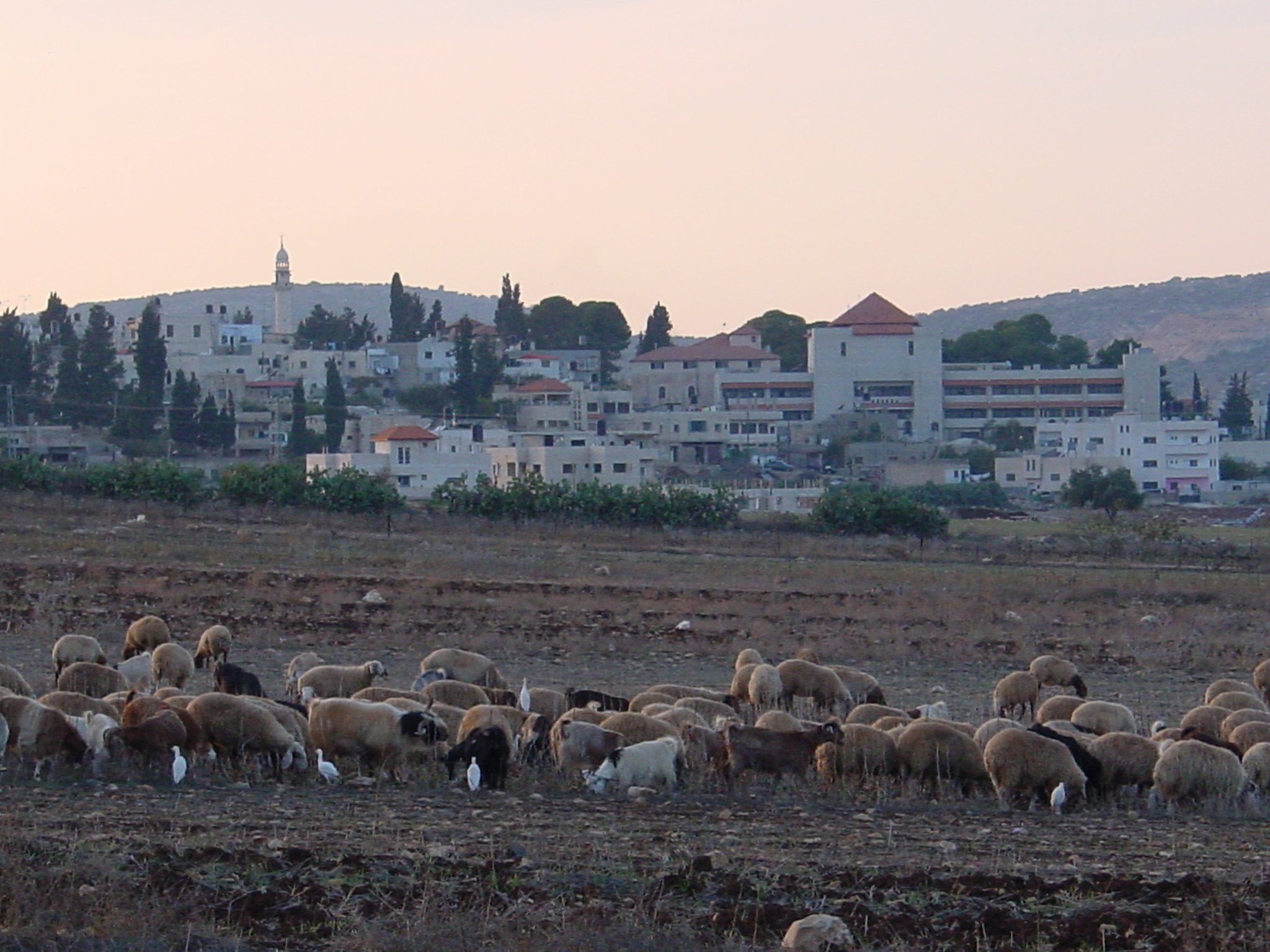April 3, 2002
Zababdeh, Palestine, has become our home - and now we have left it for who knows how long?
With no school, no telephones, Jenin surrounded, and a "martyr" from Zababdeh, we decided to head out. The only thing left to do in Zababdeh is suffer whatever it is that the people are going to face. We can do more good on the other side of the Green Line.
We called a taxi, promised Abuna that we'd stay in touch, and headed off on our now well-traveled mud road towards the border. The rain made what was already mud even harder to traverse, but our driver got us into the town of Jalame. As we rode along, we could see an Apache helicopter directly overhead. These have been used for targeted assassinations of Palestinian militants. Even though logic told us not to worry, our bodies told us otherwise.
Our driver was too afraid to take us to the main road, given the coming and going of Israeli military, so we walked from the edge of the town of Jalame. So many tanks had been traveling to and from Jenin that the road was an inch or more deep in mud. We looked back to see two Apache helicopters hovering over Jenin. We could also see smoke rising from the town and heard awful military-sounding noises. We looked back again to see a line of tanks rumbling their way up the deserted road towards the checkpoint - thus we shared a destination. Our legs began to grow weak - the Israeli military's behavior has always been questionable at best, but the last few months have rendered it moreso - even when it comes to internationals.
We made it to the checkpoint, where a soldier who recognized us greeted us warmly and said he would see us when we came back. We headed up in another taxi to Jaffa of Nazareth to stay with American friends. Considering what's happening a few short miles away, the situation on the other side of the Green Line felt absurd - people jogging, shopping, riding bikes, living their lives unhampered. There is fear here, certainly, instilled by suicide bomb attacks. But the atmosphere here and there cannot be compared.
We spent most of the day on the phone with friends all over the West Bank hearing their stories and reassuring them with the hope - growing more distant by the moment - that our retreat to Nazareth is temporary. We've left a lot behind in Zababdeh. Leaving this morning, we took one last look around our apartment and had to come to the realization that we may never see any of it again. May we be proven wrong.
The word from Zababdeh (by cellphone) is better than most: electricity use will be limited to a few hours at night (due to limited supplies of petrol for the generator), no telephones to the outside except the overly-crowded cellphone networks. Friends in Bethlehem and Ramallah tell different stories, though - food shortages, no electricity, running low on water, constant shooting, no medical services, afraid to leave to get supplies to stay...The people in Jenin tell theirs - 150 tanks around the city, 12 inside, no electricity, constant shooting, an old man killed by the Catholic church at the center of town, a nurse killed, the Refugee Camp invaded again, tanks outside the door, lots and lots of fear...
We also talked to two American friends living in the West Bank, married to Palestinians. They both - as well as their children - are American citizens. The consular officials who are arranging evacuations of American citizens from Bethlehem told our friend that her children (an infant and a toddler) cannot be evacuated, because they have also Palestinian IDs. Our friend near Ramallah has also been told that she cannot leave with her two sons. What is the meaning of citizenship, then? Absurd. Stunning. Frightening.
We've also received hundreds of emails about the situation from eyewitnesses - technology triumphs for truth. All day we've been hearing F-16s heading south - towards Jenin and who knows where. We remain restless and very worried about our friends. Lord have mercy.

